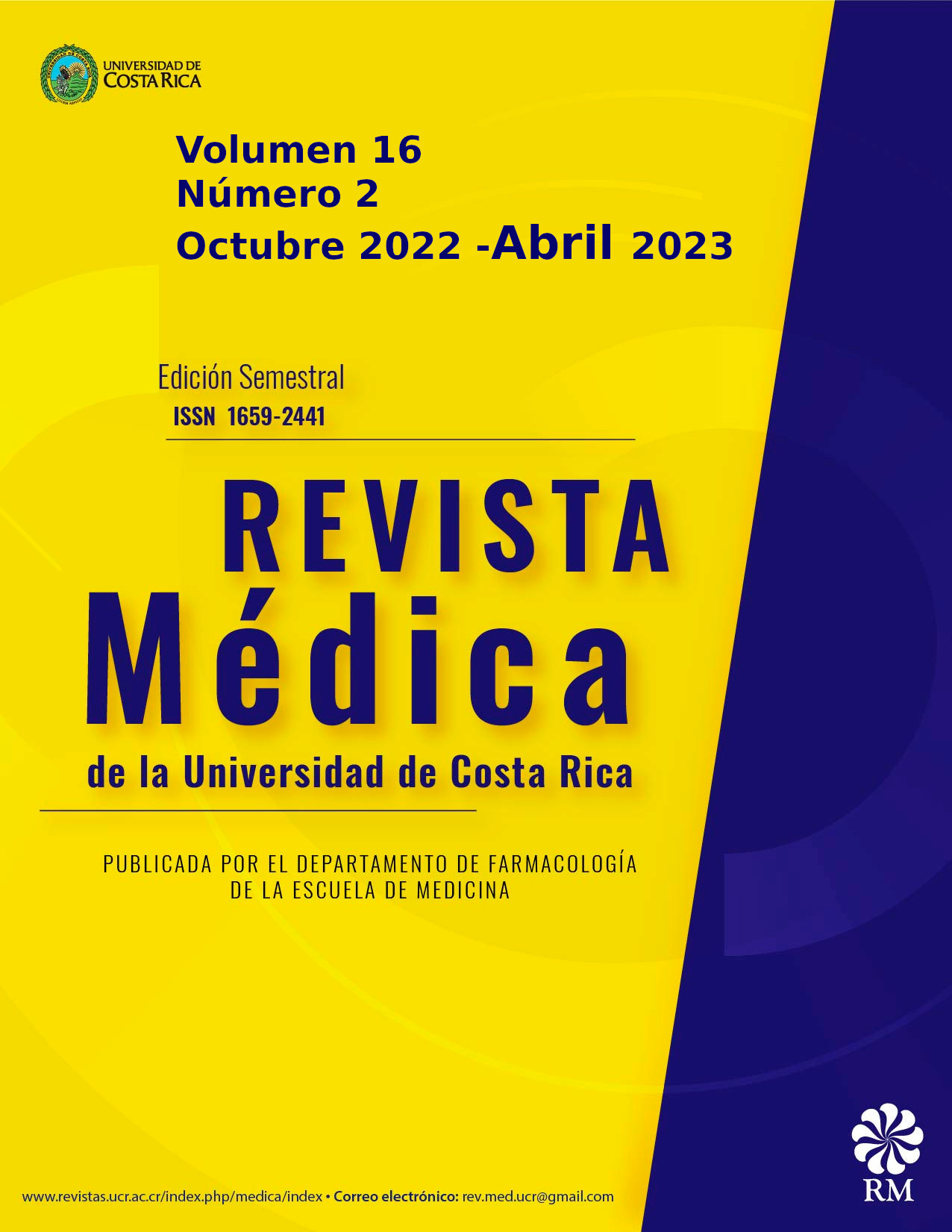Resumen
La Edwardsiella tarda se ha asociado principalmente a infecciones gastrointestinales, cuando se entra en contacto o se consumen animales acuáticos mal cocidos, incluidos reptiles. Por lo que se ha considerado a E. tarda como un germen que comparte los patrones clínicos de la salmonelosis. Cuando se presenta en huéspedes con algún espectro de susceptibilidad debido a inmunosupresión hasta el 20% del compromiso se ha reportado extraintestinal incluyendo su presentación más severa en forma de bacteriemia. Presentamos un caso de infección por Edwardsiella tarda en una paciente con antecedente de neurofibromatosis y sarcoma fusocelular de alto grado, bajo tratamiento inmunosupresor, la cual debuto con sangrado genital y rápido deterioro del estado general. Se destaca el papel que presenta la rápida identificación bacteriana por parte del laboratorio clínico usando métodos moleculares y cultivos convencionales para disminuir la incertidumbre diagnóstica, lo que representó un papel crucial en el tratamiento antibiótico final de la paciente y la resolución del proceso infeccioso.
Palabras clave: Bacteriemia, Edwardsiella tarda, Choque Hipovolémico, Inmunosupresión. Fuente:DeCS.
Citas
Ewing WH, Mcwhorter AC, Escobar MR, Lubin AH. Edwardsiella, a new genus of Enterobacteriaceae based on a new species, E. tarda. Int J Syst Bacteriol. 1965 Ene 01;15(1):33–38.
Tamura K, Sakazaki R, McWhorter AC, Kosako Y. Ed-wardsiella tarda serotyping scheme for international use. J Clin Microbiol 1988; 26: 2343-2346
Imhoff JF. “Enterobacteriales”. BT - Bergey’s Manual® of Systematic Bacteriology. In: Brenner DJ, Krieg NR, Staley JT, Garrity GM, Boone DR, De Vos P, et al. (eds). Boston, MA: Springer US; 2005. Consultado: 6 de febrero de 2022 p. 587–850. Disponible en: https://doi.org/10.1007/0-387-28022-7_13
Janda JM, Abbott SL. Infections Associated with the Genus Edwardsiella: the Role of Edwardsiella tarda in Human Disease. Clin Infect Dis. 1993 Oct;17(4):742–748.
Janda JM, Abbott SL. The Changing Face of the Family Enterobacteriaceae (order: “Enterobacterales”): New Members, Taxonomic Issues, Geographic Expansion, and New Diseases and Disease Syndromes. Clin Microbiol Rev. 2021 Feb 24;34(2).
Amorocho Pérez RD, García Ramírez A. Sepsis por Edwardsiella tarda y asociación con anemia falciforme: reporte de caso y revisión de la literatura. Med. Lab. 2008 Ene 1;14(1-2):43-8. Disponible en: https://medicinaylaboratorio.com/index.php/myl/article/view/468
Thune RL, Stanley LA, Cooper RK. Pathogenesis of Gram-Negative Bacterial Infections in Warmwater Fish. Annu Rev Fish Dis. 1993;3:37–68.
Kamiyama S, Kuriyama A, Hashimoto T. Edwardsiella tarda Bacteremia, Okayama, Japan, 2005-2016. Emerg Infect Dis. 2019;25(10):1817-1823.
Wyatt LE, Nickelson R 2nd, Vanderzant C. Edwardsiella tarda in freshwater catfish and their environment. Appl Environ Microbiol. 1979;38(4):710–4. Disponible en: http://dx.doi.org/10.1128/aem.38.4.710-714.1979.
Joh S-J, Kim M-J, Kwon H-M, Ahn E-H, Jang H, Kwon J-H. Characterization of Edwardsiella tarda isolated from farm-cultured eels, Anguilla japonica, in the Republic of Korea. J Vet Med Sci. 2011;73(1):7–11. Disponible en: https://www.jstage.jst.go.jp/article/jvms/73/1/73_10-0252/_article/-char/ja.
Jordan GW, Hadley WK. Human infection with Edward-siella tarda. Ann Intern Med 1969; 70: 283-288.
Sachs JM, Pacin M, Counts GW. Sickle hemoglobinopathy and Edwardsiella tarda meningitis. Am J Dis Child 1974; 128: 387-388.
Leung KY, Siame BA, Tenkink BJ, Noort RJ, Mok Y-K. Edwardsiella tarda - Virulence mechanisms of an emerging gastroenteritis pathogen. Microbes Infect. 2012 Ene;14(1):26–34.
Cannon JW. Hemorrhagic Shock. N Engl J Med. 2018;378(4):370–379.
Stock I, Wiedemann B. Natural Antibiotic Susceptibilities of Edwardsiella tarda, E. ictaluri, and E. hoshinae. Antimicrob Agents Chemother. 2001 Ago 01;45(8):2245–2255.
Muyembe T, Vandepitte J, Desmyter J. Natural colis-tin resistance in Edwardsiella tarda. Antimicrob Agents Chemother 1973; 4: 521-524.
Stock I, Wiedemann B. Natural antibiotic susceptibilities of Edwardsiella tarda, E. ictaluri, and E. hoshinae. Antimi-crob Agents Chemother 2001; 45: 2245-2255.
Tonosaki K, Yonenaga K, Mikami T, Mizuno T, Oyama S. Acute Cholecystitis, Sepsis, and Disseminated Intravascular Coagulation Caused by Edwardsiella tarda in an Elderly Woman. Tokai J Exp Clin Med. 2021;46(1):51–53.
Janda JM, Abbott SL. Infections associated with the genus Edwardsiella: the role of Edwardsiella tarda in human dis-ease. Clin Infect Dis 1993; 17: 742-748.
Wang IK, Kuo HL, Chen YM, Lin CL, Chang HY, Chuang FR, et al. Extraintestinal manifestations of Edwardsiella tarda infection. Int J Clin Pract 2005; 59: 917-921.

Esta obra está bajo una licencia internacional Creative Commons Atribución-NoComercial 4.0.

